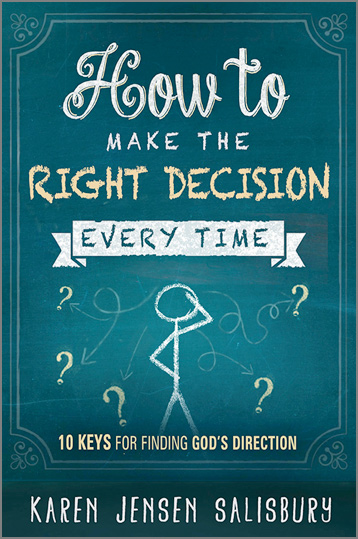No One Could Know by Kristan Gray
No One Would Know
Kristan Gray
Kristan Gray’s favorite job is being a mother of three. She is passionate about writing and enjoys using her talents as a columnist for a local newspaper. Her talents include public speaking and previously working as a radio news anchor. She was also an actress for Fire by Night, a Christian program on TBN. Kristan and her husband Scott are both Rhema Bible school graduates, and have been actively involved in ministry both stateside and abroad, where they spent five years serving as missionaries in Africa. She gives God all the credit for everything good in her life.
No One Could Know is engaging, thought provoking and informative. Most importantly, the book is a tool of recovery for those who walked the same road Kristan did. When she chose abortion, she was already a Christian, but had no idea how astounding and full of grace, forgiveness and love our awesome God is. Jesus Christ has truly set her free. Hopefully, you experience His presence as you relax and slip into an excerpt of her autobiography.
This article is excerpted from Kristan Gray’s book, No One Could Know. It can be found at kristangray.com, and at most online book retailers in hardback, soft cover, and as an e-book.
![]()
Chapter 1: Sweet Sixteen and Never Been Kissed
 “If you’re ‘sweet sixteen and never been kissed,’ I’ll buy you a gold watch for your sixteenth birthday!” As a little girl, that frequent promise from my fabulous mom created a fairy-tale-princess impression in my mind. I imagined how wonderful life would be when I blew out that sixteenth candle on my traditional German chocolate birthday cake!
“If you’re ‘sweet sixteen and never been kissed,’ I’ll buy you a gold watch for your sixteenth birthday!” As a little girl, that frequent promise from my fabulous mom created a fairy-tale-princess impression in my mind. I imagined how wonderful life would be when I blew out that sixteenth candle on my traditional German chocolate birthday cake!
As it turned out, my first kiss was planted on my lips in the gymnasium at Woodward Elementary School’s gymnasium in St. George, Utah, when I was twelve. The Gideon’s International organization visited Mr. Hudson’s sixth grade classroom that day and handed out little red Bibles. Some friends came up with a brilliant idea to sneak off after lunch and use the Bibles in a wedding ceremony. What else were we to do with them? So, with Luke Parks officiating the double wedding, Kate Harris and Ron Goldstein, and Cody Smith and I said, “I do” and kissed a supremely awkward kiss.
It was nothing like I had imagined. I didn’t hear Karen Carpenter’s voice singing, “Why do birds suddenly appear, every time you are near?” or see fireworks like Bobby Brady did when he kissed Millicent on The Brady Bunch TV show.
My heart pounded against my ribs and my shaking palms pooled with sweat, thanks to the peer pressure other sixth graders were dishing out that year. It seemed like lunch break and recess were daily wracked with expectation to meet behind a building to kiss. I wondered, “Is this what being a girlfriend is supposed to be like? I would have rather been playing dodgeball. Is this how boyfriends are supposed to act? In elementary school? Why did we have to kiss?
Because I was twelve instead of sixteen when I was kissed for the first time, I’d sacrificed a gold watch for the deal—and it wasn’t even that great. It was clumsy and pressure ridden. And once I had crossed that line, it felt like there was no going back. It seemed like kissing was expected from then on. After all, that’s what boyfriends and girlfriends did. Didn’t they? Didn’t everyone?
Weren’t real relationships supposed to be unpretentious and straight forward? I started to miss being in third grade when things were clear—like the note Cody had passed to me during Mr. Graham’s third grade reading class. On a piece of red construction paper with torn edges, he’d written the sweetest thing I’d ever seen. “I like you. Do you like me? Circle yes or no.”
I wasn’t so sure about the new expectations. What was with all this kissing clutter clouding simplistic relationships? I was better at passing straight-forward notes and just hanging out playing kickball. Those rules were clear.
Soon after we got “married,” we all found different relationships. Perhaps Cody could tell in my kisses that I’d rather be slugging a softball bat or solving math equations than kissing.
Chapter 2: The Morning Side of the Mountain
Junior high whizzed by without my having a boyfriend, per se. Oh, there were crushes all right but none that ever materialized into a romantic relationship. I was frizzy-haired from bad perms and my teeth looked as if someone had rolled a handful of molars into my mouth like they were Las-Vegas dice, letting my choppers land where ever they would. In my mind, my Rocky Mountain jeans and jelly shoes just didn’t seem as cool on me as they did on the other girls. Braces came in the middle of the seventh grade as did gallons of Love’s Baby Soft perfume and a whole lot of Maybelline mascara from the pink tube with the green lid. Nothing, however, really covered my freckle-faced fear of getting too close to a boy.
Chapter 3: My Sweet-Sixteenth Birthday
I don’t even remember my sixteenth birthday. For the life of me, all I know about that invisible line across the great divide is that I must have had a birthday cake with homemade German Chocolate frosting and vanilla ice cream. I always do.
It’s such a shame I don’t remember a thing about turning sixteen. I do know that on my sixteenth, I received the long anticipated gold watch, even though Mom knew I’d been kissed before I blew out that last candle.
Chapter 6: I Lost It
When my new boyfriend, Brock McBaggage wasn’t working and I wasn’t busy practicing for a play or a dance recital or traveling to a speech tournament, we’d go to an occasional movie, ride horses, or hang out with other couples. We went to parties with classmates and started drinking alcohol. Brock was a great guy with friends I liked.
While he was not romantic, I enjoyed being with him and we shared the same faith.
Believing in God was important to me. Grandmama Griffith had taught me the books of the Bible when I was in first grade, and I loved hearing her tell Bible stories and learning about this Jesus she spoke about in such a personal way. I still have the bookmarker I made in Sunday school when I was six. It references Isaiah 40:8, which says, “The grass withers and the flowers fade, but the word of our God stands forever” (New Living Translation).
I didn’t really know what else the “word of our God” said—but I knew that whatever it said it would always be there—unchanging—something I could stand firm on, no matter what storm of life would come my way. That gave me great comfort. However, at the tender of age of six when I memorized those words, I didn’t know that I would someday cling to them—for dear life.
Brock’s parents were also as active in their church as a couple can be. I was glad we went to church youth group. It was nice to know there were other students out there who believed in Jesus too.
After we dated for a long time, it seemed like sex was just the next thing we were “supposed” to do, regardless of whether or not we were Christians. I don’t even remember our first kiss. I do, however, vividly remember everything about the first time that we had sex.
That old childhood peer pressure to smoke, to kiss and to sneak into the candy store came flooding back. Why didn’t I say “no” back then, and, dear God in heaven, why didn’t I say no to Brock?
It was the first week in December when we went to his house for lunch; it was a Thursday. We only had about forty minutes before we had to be back for our next class. No one else was home. Brock led me into his room. Big mistake. The biggest mistake of my life. Things moved quickly from the time we started kissing. I encourage other kids now—the first time you kiss someone should be when the pastor says, “You may now kiss the bride,” because once you start that train, it sure is difficult to stop it.
After some intimate time—the condom broke. It just broke.
I didn’t think it was a big deal, but Brock utterly freaked out. He wasn’t angry—he was terrified. He immediately panicked, “I know you’re pregnant!”
A clinic’s pregnancy test son revealed, I indeed was pregnant.
What was I going to do? I could move to another state and live with other family, but I didn’t want to move away. I had been “the new girl” at this school and it wasn’t so bad, but if I moved to a new place as “the pregnant new girl,” I was sure to be an outcast. I imagined a cold and clammy village in seventeenth century Boston with overgrown vegetation and a big scarlet letter on my chest. I might as well have shown up at school in a red suit with horns and a tail, carrying a pitch fork. I speculated how challenging it might be to hide a baby under my clothes without drawing suspicion … no one could know.
Brock echoed the sentiment, insisting with great passion that no one could know! After all, there were family members who held important church positions and it would embarrass them. I argued with him that it was a baby and how could we kill the very life we had created?
Chapter 7: Terminated
The doctor finished almost as soon as he’d begun. I thought it would’ve taken a lot longer, but that was it. In—I don’t know—thirty minutes or less, I’m guessing, my life was mine again and Brock’s life was his.
The nurse led me around a corner and told me to lie down in a reclining chair next to a host of other women who were there for the same reason. It looked like a row of lounge chairs at a resort where we should all be sipping tropical drinks with little umbrellas poking out the top while passing sunscreen to each other. And I thought this event was supposed to be discreet so that “no one could know.”
How had so many gotten pregnant unexpectedly? How many of us were there, anyway? How many were there in the U.S. — or other countries?
Every layer of skin and muscle tissue felt heavy and like it was slipping off of my skeleton. My female parts particularly hurt with searing pains—and my heart felt even worse.
The nurse handed me a pill. “Here. It’s Valium to help you relax.”
Hmm … Valium … for anxiety. What about my heart that felt like it had been terminated as well? I’d just done the most dramatic thing in my life and I was supposed to be calm? Where was the hard stuff? “Here’s a pill—it’s all ‘over’ now”? How long was long enough to gain a full recovery anyway?
I quietly blended back into the crowded hallway at school as classes were changing. No one knew our day had been anything other than routine.
No one could know.
Chapter 9: The Issue of Rape
My relationship with Brock ended, he moved away, and I found another group of friends.
At one weekend party, a “friend” kept pouring more and more whiskey into my Coke without my knowledge. So with every drink I took, the alcohol ratio grew more concentrated; and in a short time span, I passed out stone cold from alcohol poisoning.
I remember waking up once that night hanging over the toilet seat, throwing up everything I’d put into my stomach, then passed out again.
The next thing I knew, I woke up in a different room with that particular “friend” in the act of raping me.
Chapter 10: The Only Way Out
If only I would have stayed sober. If only the “supervising” adult had not purchased the alcohol for us. If only I would have learned how to say no. But, I didn’t know I was in danger … did not even see it coming.
While we’re on the subject—in case anyone out there is wondering—passed out means no! Drunk or drugged means no! Crying means no. Turning away means no. Pushing means no. “Stop” means no. “Get off” means no.
“No” means no!
After all that had happened, I could not shake the shame. Suicide seemed the only way out. But having been to the funeral of a friend who had committed suicide, I saw the impact it left on the girl’s family and our community, and knew I could cause that kind of pain to the other people in my life. There had already been enough death.
One Saturday morning while cleaning my room, I ran across my childhood bookmark from Isaiah 40:8, “The grass withers and the flowers fade, but the word of our God stands forever” (New Living Translation).
I still did not know what else the Bible said, but it meant everything to me that the Word of God would always be there. I found tremendous comfort in that verse and thought about it all the time. The “Jesus Loves Me” song played repeatedly in my head like a broken record—but I still felt like an enormous hypocrite.
Chapter 12: The Hardest Thing
Understanding that God could love me no matter what I’d done started to make sense the more time I spent getting to know Him. I finally allowed myself to receive His unfathomable pardon for my crime. My debt had been paid through the work Christ did on the cross. How could I not forgive those who’d hurt me, when God was forgiving me?
John 3:17 made perfect sense now—“For God sent not his Son into the world to condemn the world; but that the world through him might be saved” (KJV).
God was not condemning me! The only condemnation was from perceived judgment that may have or may not have come from those in the church! We never even asked Brock’s parents how they’d have responded to the news if we’d decided to keep the baby! Would I have been locked away in the bell tower of the church with the bats? Would I have been excommunicated? Would anyone have tried to send me away to another country?
Why do we torture our own souls with endless questions and perceptions as if they were facts?
After experiencing tremendous pain, shame, and guilt, I found great peace in God’s Word with scriptures like the Amplified Bible translation of Psalm 23:
The Lord is my Shepherd [to feed, guide, and shield me], I shall not lack. He makes me lie down in [fresh, tender] green pastures; He leads me beside the still and restful waters. He refreshes and restores my life (my self); He leads me in the paths of righteousness [uprightness and right standing with Him—not for my earning it, but] for His name’s sake. Yes, though I walk through the [deep, sunless] valley of the shadow of death, I will fear or dread no evil, for You are with me; Your rod [to protect] and Your staff [to guide], they comfort me. You prepare a table before me in the presence of my enemies. You anoint my head with oil; my [brimming] cup runs over. Surely or only goodness, mercy, and unfailing love shall follow me all the days of my life, and through the length of my days the house of the Lord [and His presence] shall be my dwelling place.
My heart had relished in receiving God’s compassion, and I learned to forgive the “friend” who raped me. But I had had no mercy on myself. The hardest thing was releasing the bloody guilt I had carried on my back for so long.
I heard Reverend Hagin say that morning on the radio words that Jesus had said. Although those words were thousands of years removed from when Jesus spoke them, it seemed like Jesus was standing in front of me, looking me in the eye, and speaking directly to me:
Come to Me, all you who labor and are heavy laden, and I will give you rest. Take My yoke upon you and learn from Me, for I am gentle and lowly in heart, and you will find rest for your souls. For My yoke is easy and My burden is light. (Matthew 11:28–30 New King James Version)
I began to see God as a good shepherd, rather than a harsh judge like how I perceived church people to be; and it made me want to get to know what God is really like.
Because I was getting to know Jesus as the “Rock of my Salvation,” I sensed my gyrating emotional free fall beginning to slow down. I began to find a pointed course, and could sense earth beneath my feet again.
Thankfully, God’s love surpasses all of our foolishness; and at the end of the day, He is still waiting right in front of us with outstretched arms and open hands to embrace us with His mercies that are new every morning.
I rested there in His caring Father-like love for me. I at last heaved my final cares over on Him—God, the One who was, and is so willing to set aside my sin and welcome me into His strong arms of mercy and renewal.
The weight lifted. My burden was gone.
Hardly a day has passed that I don’t think about the fact that I have a child in heaven, but the weight of sin is not there anymore. Jesus Christ has set me free.
This article is excerpted from Kristan Gray’s book, No One Could Know. It can be found at kristangray.com, and at most online book retailers in hardback, soft cover, and as an e-book.
What others are saying about No One Could Know:
My chest tightened and my heart hurt as Kristan shared her life experiences—the choices, the consequences, and the salvation. No One Could Know is a book that I will share with my daughter. It is a beautiful work of literature that will facilitate many discussions and, I hope, inspire others to carefully consider their life choices. — U.S. Senator Joni Ernst, Iowa
No One Could Know will drive you to not only reflect on the choices the author made, it will also encompass a motive for you to reflect on the things that you have gone through in your own life. The courage Kristan shows in sharing her heart in this autobiography is truly admirable. As a longtime friend dating back to our childhood, she truly encapsulated the secret, for as close as we were, even I did not know. —Kim Carpenter, Author of the #1 New York Times Bestselling Book, The Vow
No One Could Know is the true, heart-breaking story of love, pregnancy, abortion, guilt, religious cover up, and the power of God’s truth, mercy, forgiveness, and freedom. This is a must read for every student, mom, dad, and Christian leader, as well as those who have experienced the guilt and shame of a past abortion. —Beth Jones, Author and Cofounder of Valley Family Church, Kalamazoo, Michigan
![]()
[1] Karen and Richard Carpenter, vocal performance of “Close to You,” written by Hal David and Burt F. Bacharach, released August, 1970, on Close to You.

 Effective leaders are consumed with a vision about the future that is different from today. Gandhi, Martin Luther King, and Nelson Mandela were all incredibly dissatisfied with the reality that they saw. They all envisioned, articulated and helped lead towards a different ending to the story. A leader has to learn to live in the tension of what is and what should be. Some define frustration as the gap between our expectations and reality.
Effective leaders are consumed with a vision about the future that is different from today. Gandhi, Martin Luther King, and Nelson Mandela were all incredibly dissatisfied with the reality that they saw. They all envisioned, articulated and helped lead towards a different ending to the story. A leader has to learn to live in the tension of what is and what should be. Some define frustration as the gap between our expectations and reality. Over the years I’ve had a lot of people say to me: “I don’t know what to do or which way to turn,” or “I’m so afraid of making the wrong decision,” or “If God would just tell me what to do, I’d do it!”
Over the years I’ve had a lot of people say to me: “I don’t know what to do or which way to turn,” or “I’m so afraid of making the wrong decision,” or “If God would just tell me what to do, I’d do it!” Rev. Jim Herring is gifted Bible teacher who ministers God’s Word in a passionate, powerful, and practical way. The focus of Jim’s ministry is to help believer’s overcome the trials of life, walk by faith, and reach their full potential in life.
Rev. Jim Herring is gifted Bible teacher who ministers God’s Word in a passionate, powerful, and practical way. The focus of Jim’s ministry is to help believer’s overcome the trials of life, walk by faith, and reach their full potential in life. We live in a comparison-centered world. People compare: houses, cars, spouses, physical qualities, clothing, and professions. I remember being in high school and comparing who had the coolest tennis shoes. Of course, I fell into the trap and always tried to secure the coolest “kicks” as we called them.
We live in a comparison-centered world. People compare: houses, cars, spouses, physical qualities, clothing, and professions. I remember being in high school and comparing who had the coolest tennis shoes. Of course, I fell into the trap and always tried to secure the coolest “kicks” as we called them.